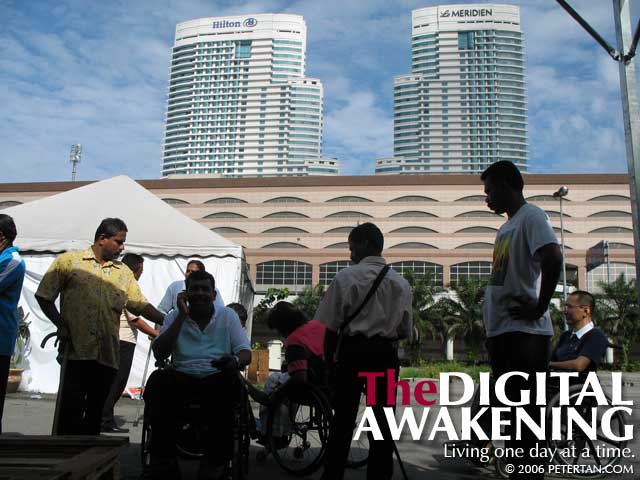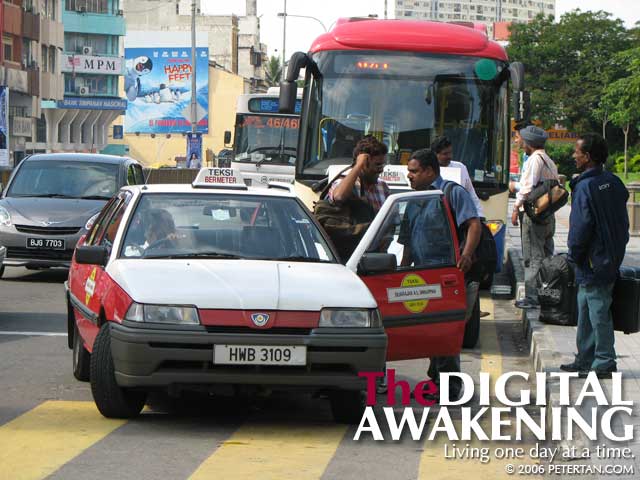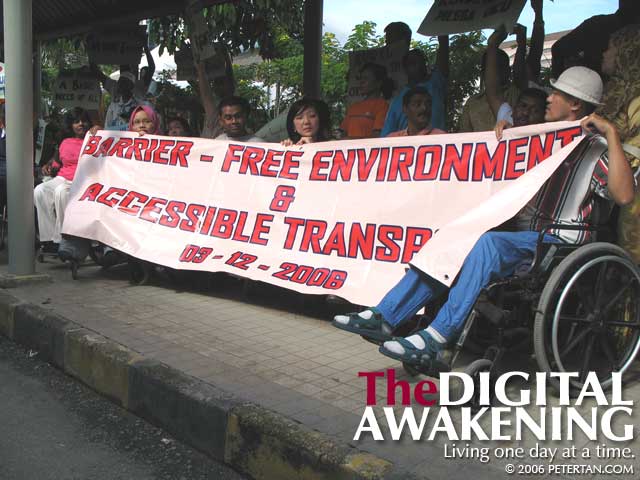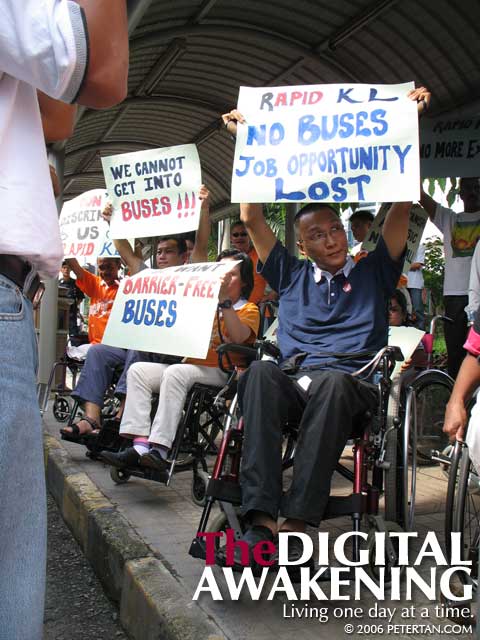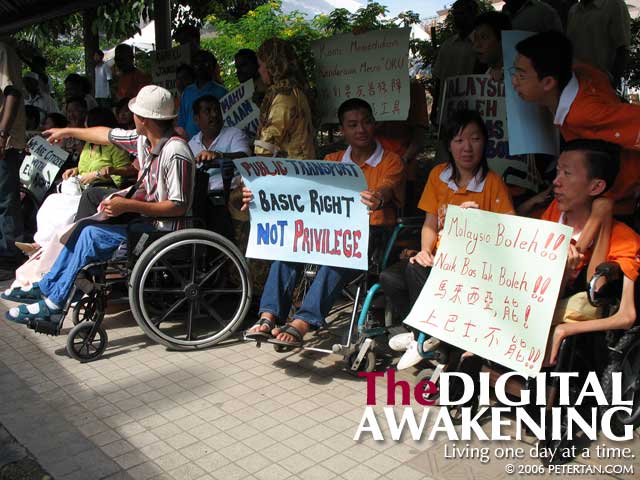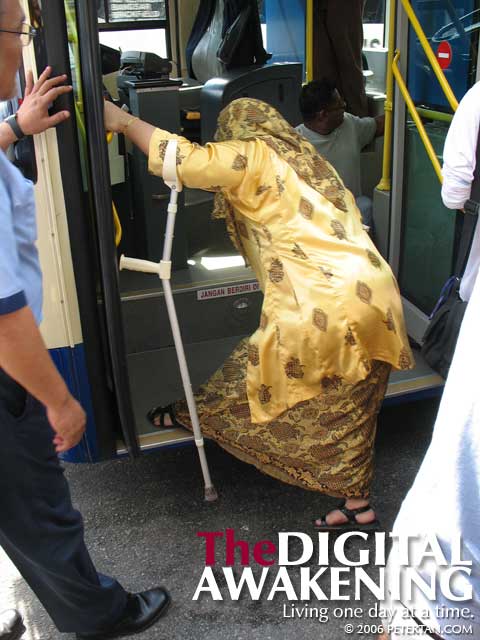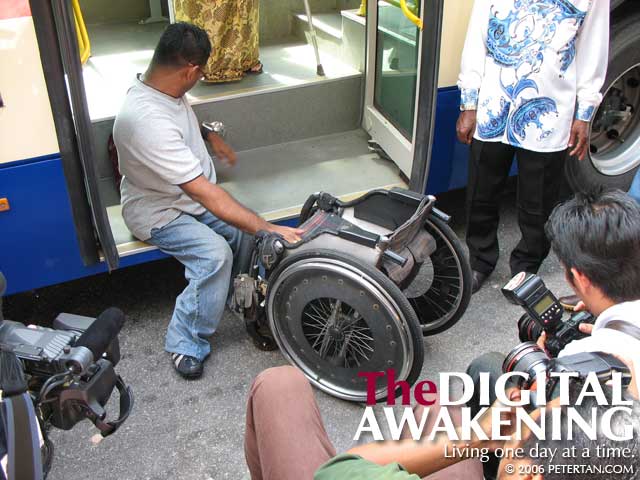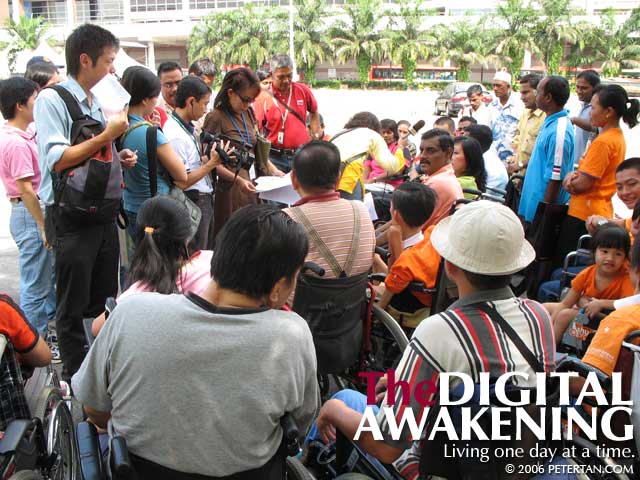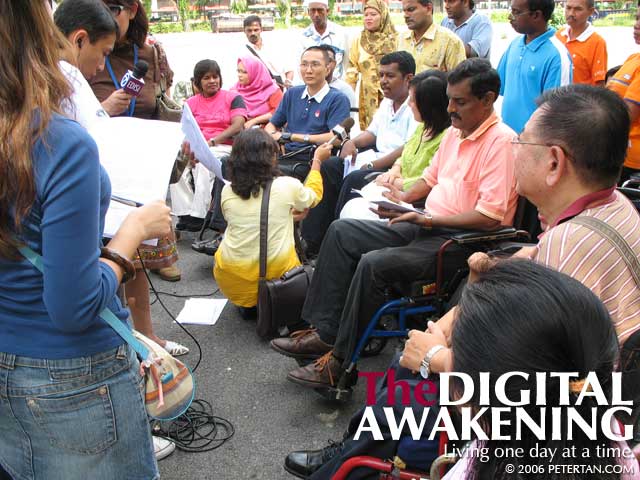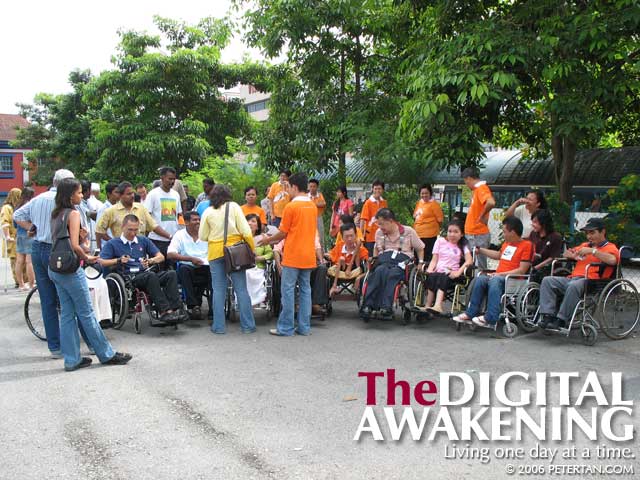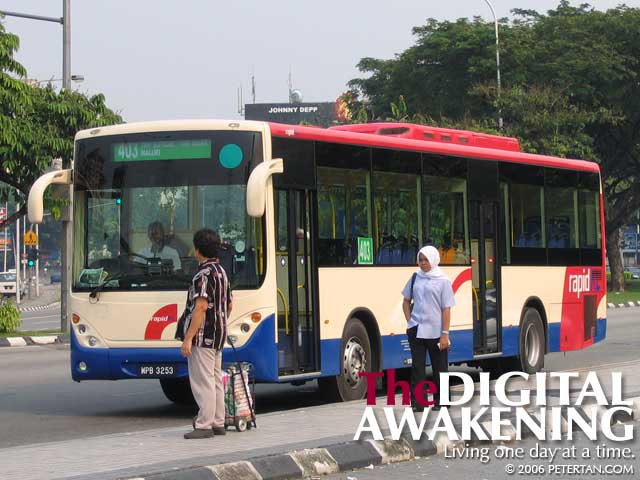The Right To Ride

Hendak seribu daya, tak hendak seribu dalih. This is the impression that members of Barrier-Free and Accessible Transport Group (BEAT) felt after a recent closed-door meeting with Rein Westra, CEO of Rapid KL. That meeting was the result of the campaign by BEAT to highlight that none of the Rapid KL buses are accessible to wheelchair users. BEAT is an informal coalition of sixteen NGOs serving persons with various impairments.
During the campaign at the Bangsar LRT Station on September 24, NST reported that “a RapidKL spokesperson said the transport company had bought 100 disabled-friendly buses with ramps. These would be delivered next month.” Nearly two months have passed and all BEAT members have seen are only printouts of the said buses. Whether these buses have actually been ordered is anybody’s guess.
However, the most unacceptable part was the excuses given to justify why Rapid KL still cannot provide accessible bus service in the Klang Valley. Among the reasons given were that there was not enough time to look into the needs of all quarters when the purchase of the buses was initiated, that pavements in many parts of the city are in poor condition, the high cost for the repairs and the time needed to repair them. Throughout the two-hour meeting, there never was an iota of commitment to provide accessible buses on a full-scale basis.
This all boils down to the chicken or egg issue. Rapid KL said that even if they have the money for such buses it is pointless to put them on the roads because the bad pavements will prevent wheelchair users from getting into the buses. On the other hand, local governments do not see the need to upgrade the pavements to cater to such buses when none is in service. How can there ever be a solution when such paradoxes are being perpetuated?
Rapid KL stated that they ordered 1000 new buses. Of that amount, only 100 are fitted with accessible features such as no step, low floor and ramp. Assuming that the buses have been ordered and will be put into service soon, and pavements repaired and upgraded, the numbers are still insufficient to serve all routes effectively. To just put the buses on one or several routes out of the 179 that Rapid KL is currently operating is not a solution. There will not be enough frequency and interconnectivity to make it workable. Moreover, disabled persons do not go out at certain times only or live in one or two communities. They are scattered all over the Klang Valley.
Twelve years ago, a group of wheelchair users protested against Star LRT for not taking their needs into consideration. Twelve years later Star LRT, now renamed the Ampang and Sri Petaling Line, still does not have facilities for wheelchair users. Have they not waited long enough? How long more should they wait? To add to the mobility woes of wheelchair users, KL Monorail and the newly delivered Rapid KL buses are equally inaccessible.
Without convenient ways to move about, less disabled persons lose out on education and career opportunities. Severely disabled persons are forced to stay at home most of the time. There are few opportunities for self-development, socialising and participating in activities that can lead to fulfilling lives. They are further marginalised by the non-barrier-free environment in the areas that they live in. We can only try buy we will never fully understand the desolation that these people feel being cut off from the society that they are part of. It is truly a lonely world for them with only four walls as constant companions.
Accessible public transport, along with education, health care and barrier-free environment are basic rights that we as a society must provide to our own who need it. Moreover, such buses not only benefit wheelchair users but people with mobility problems like senior citizens and pregnant women. Does it not make better sense to use buses that serve everybody than those that favour people with good mobility only?
What are we effectively telling people who depend on such modes of transportation when we cite cost and a thousand other reasons as to why they are being denied such facilities? That they are not worth our time, effort and money? The energy spent to come out with various negative excuses could have been put to more productive use in looking for workable solutions. Why are the people who manage these services not doing that? Why the resistance? These are questions begging answers.
